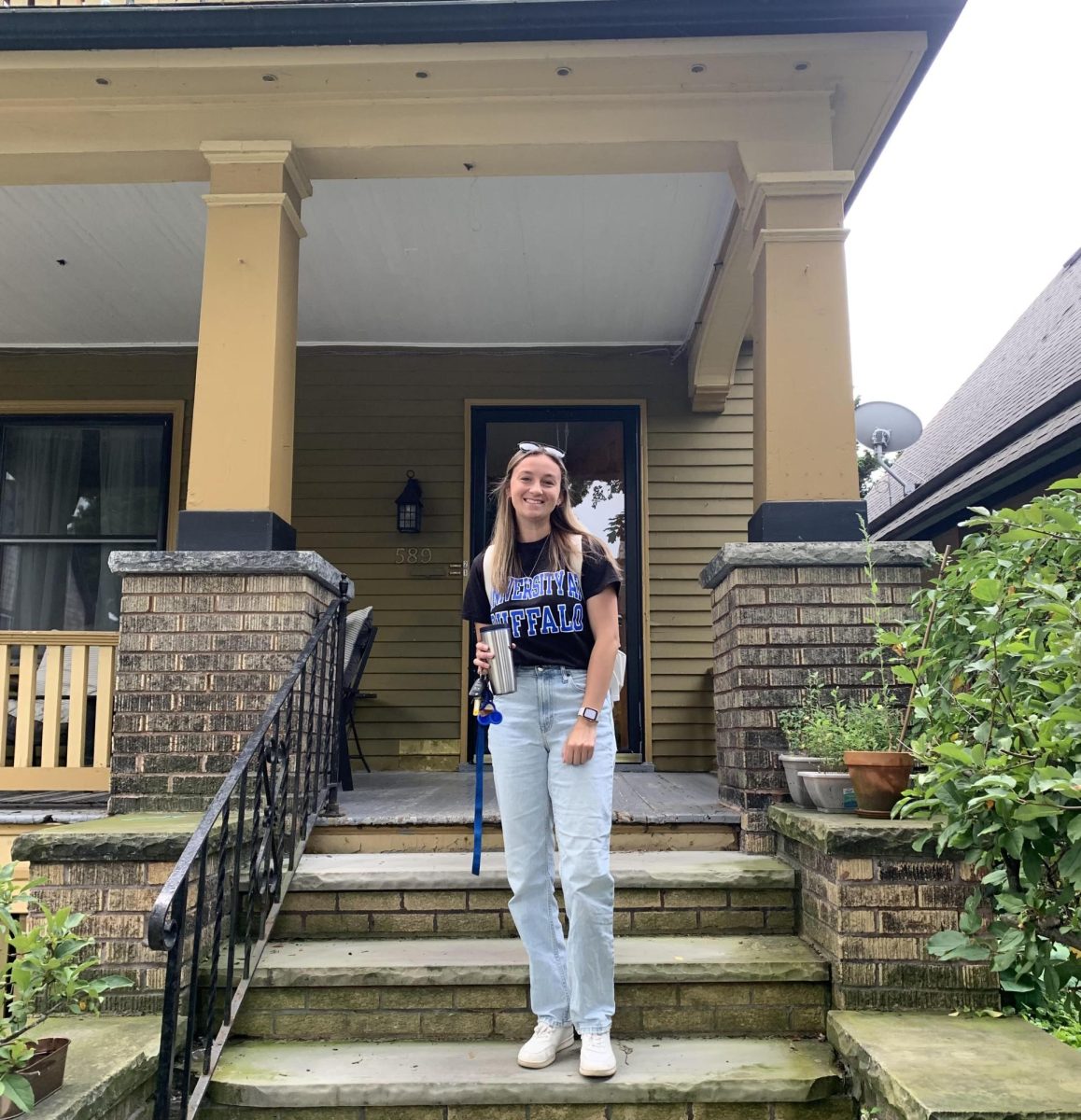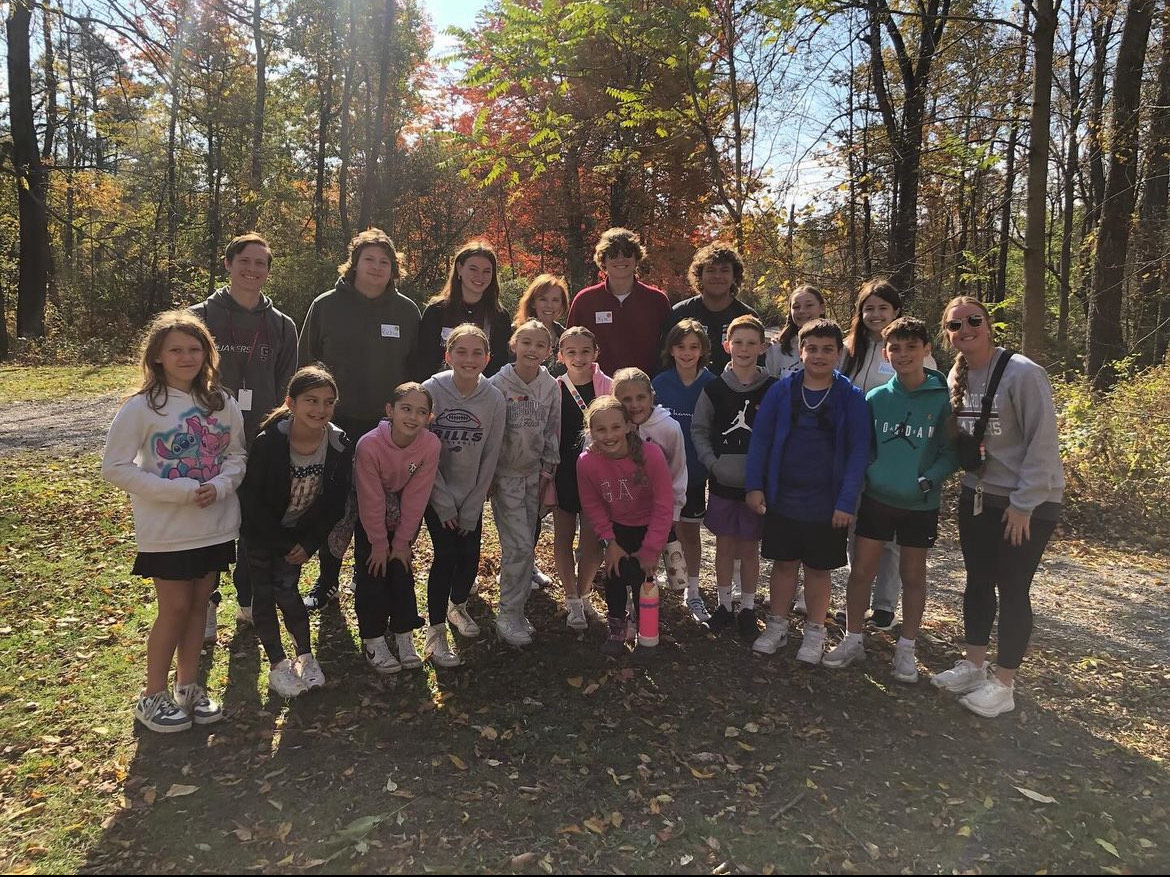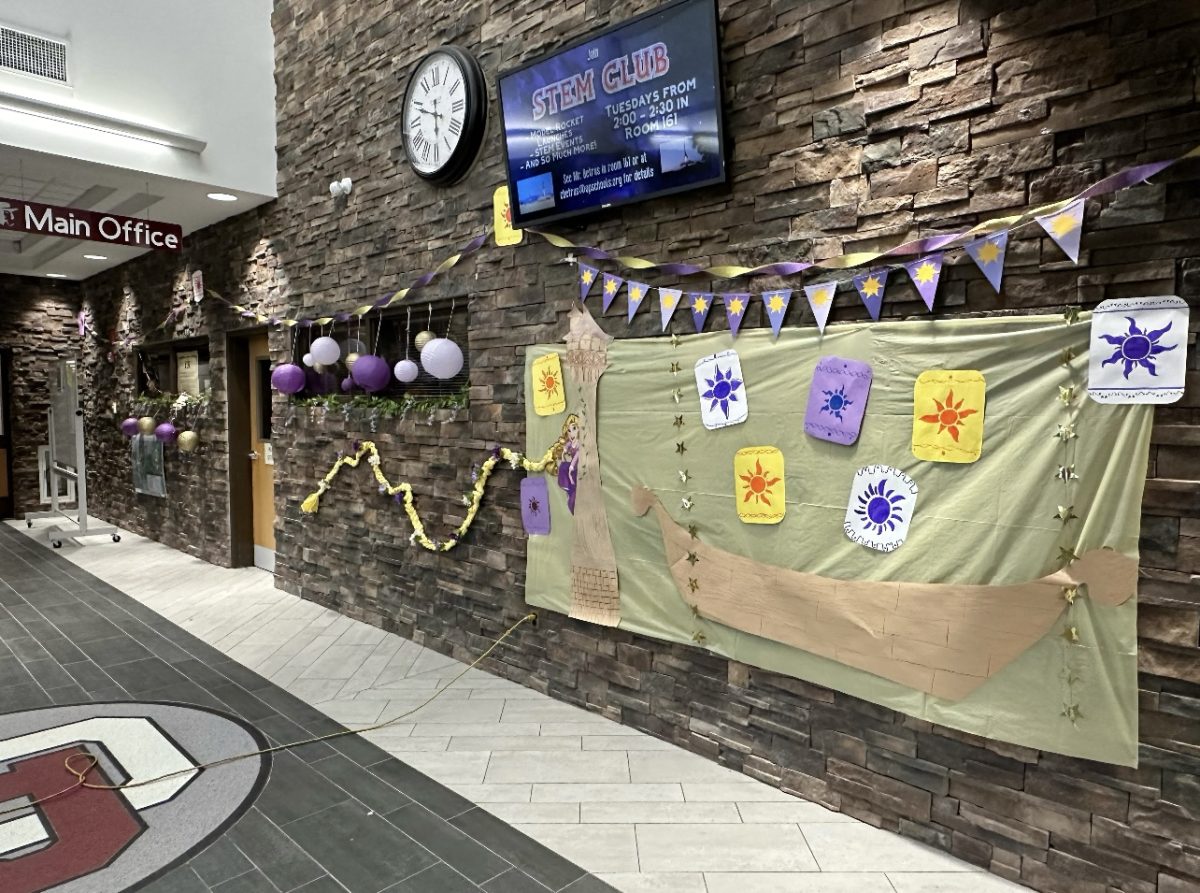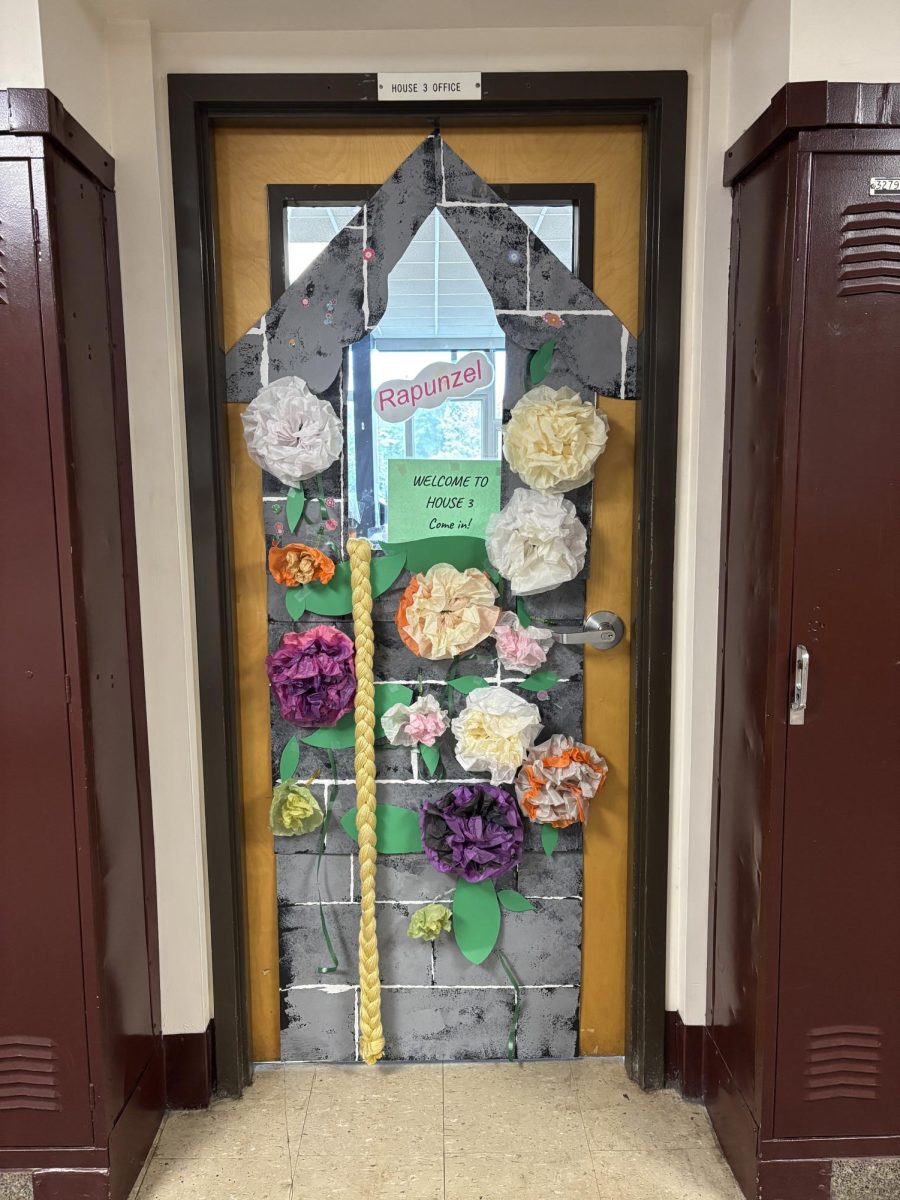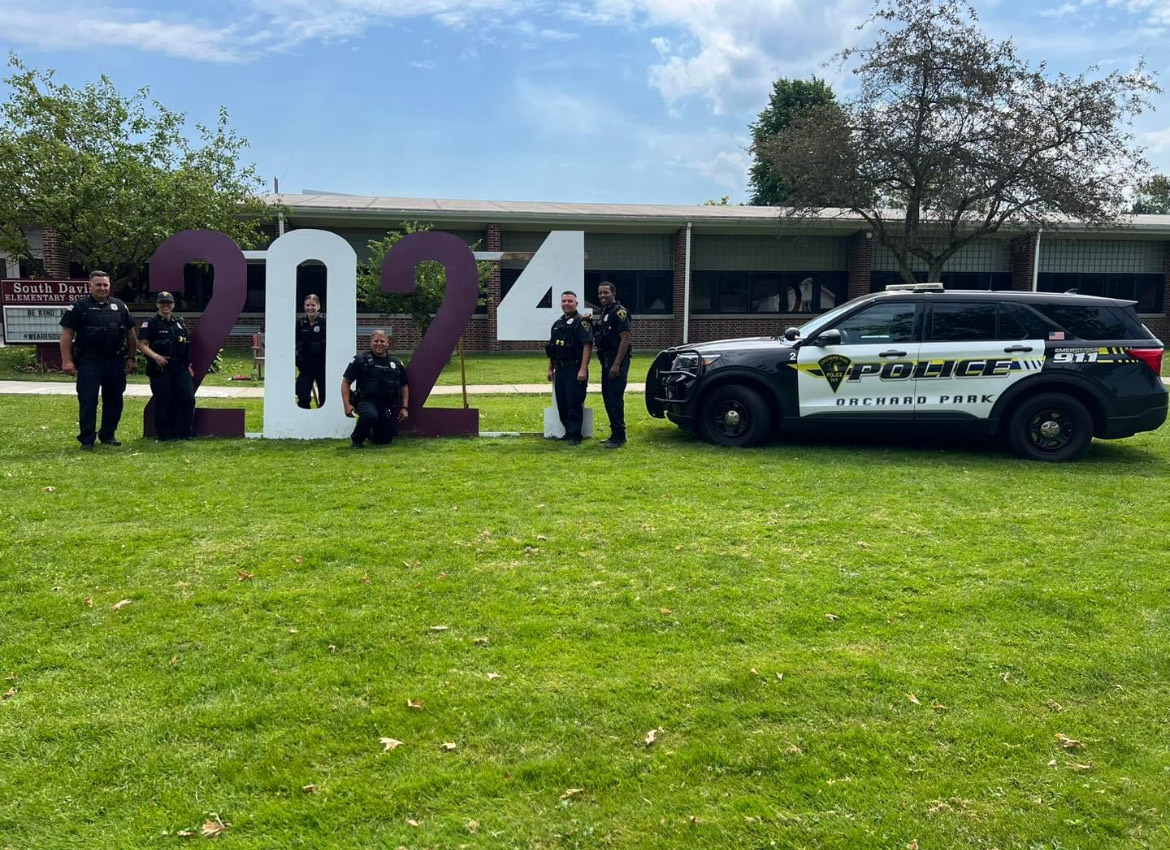Journey’s End Refugee Services is a Christian community-based organization with the mission of welcoming refugees without regard for ethnic origin or creed and to assist them to become healthy, independent, contributing members of the community. Lily Wozniak (LW), whom I interviewed, is a housing coordinator for this organization. She provides housing support and orientation, focusing on basic house maintenance for her clients. She strives to provide a healthy, comfortable, and welcoming environment for these refugees starting their lives here in Buffalo.
For the last 20 years, Buffalo has been one of the largest refugee destinations in the country. Could you share with me Journey’s End role in supporting the Buffalo and Western New York Refugee Population?
LW: Journey’s End Refugee Services (JERS) serstrives, to provide quality care and resources necessary to tend to the needs of refugees. The agency collaborates with community partners to provide services to clients and assist them while transitioning into their new homes in Buffalo, New York. In accordance with our mission statement, the goal is to help refugees become “healthy, independent, and contributing members of the community”
What countries are the refugees coming from?
LW: Refugees are arriving in Buffalo from all over the world. Generally, we see large numbers of Congolese, Syrian, Afghan, Colombian, Burmese, Rohingya, Eritrean, and Somali refugeesarriving here.
How many refugees this year have been settled in Buffalo?
LW: Resettlement agencies operate on the federal government’s fiscal year (FY), which runs from October 1 through September 30. In FY ’23, Journey’s End Refugee Services resettled around 400 refugees in Buffalo and the surrounding Western New York area. With the other local resettlement agencies in mind, I would estimate around 1,000 refugees were resettled here this past year, though no clear data has been shared yet on the total number. In comparison to FY ’22 where 613 refugees were resettled in Western New York, I expect to see reports that show an uptick in arrivals.
What special assistance do refugees need?
LW: Within their first three months in Buffalo, clients work closely with a case manager who provides a variety of services and resources to help them start their new lives in Western New York. Services include assisting clients in applying for government benefits through the Department of Social Services (DSS), which includes the Supplemental Nutrition Assistance Program (SNAP), and cash assistance. These benefits are crucial to supporting clients, as each member is only allotted $1275 to pay for necessities such as rent, utilities, and groceries, among other needs. Case managers identify individual needs during their first intake and depending on those needs, the case manager may refer clients to other departments within the agency to receive assistance. During their Welcome Period, however, case managers assist clients in applying to DSS, submitting school applications, directing clients to English classes at JERS, providing groceries, attending health care appointments, among other tasks to help refugees navigate their new lives.
How do refugees find jobs?
LW: Securing employment is a crucial aspect for clients to sustain an independent lifestyle. Clients are referred to the Employment Department, where they undergo an intake to discuss their educational and employment backgrounds. Based on the client’s background, along with their goals, Employment Specialists connect with local employers, who have worked with JERS in the past, to secure an interview for their client. The Employment Department has an extensive network of employers who are enthusiastic in working with refugees and recognize their strong work ethic. This process is sometimes hindered by the long wait time for Employment Authorization Document (EAD) cards, which can take up to six months to receive. Clients also often experience a language barrier when applying for jobs; however, Employment Specialists often find success connecting with employers within the client’s cultural community. This department does a tremendous job securing employment for our clients in a timely fashion.
How do they learn English?
LW: Upon arrival, many clients are referred to English classes offered in the Journey’s End office. The agency offers classes for all levels – Beginner, Intermediate, and Advanced. For children, many schools in Buffalo offer language support and ESL classes to help them learn the language, as well. Oftentimes, I see clients who speak different languages practice their English together through conversations in the waiting area, too.
How do they find housing?
LW: The Housing Team is responsible for housing provision within the first three months of arrival. We are able to see upcoming cases after their travel information is added to our information system and begin the process for securing a safe, affordable apartment. Sometimes, clients have friends or family in Buffalo who assist in procuring an apartment in their neighborhood through community connections, as well. However, the process after identifying potential housing remains the same. The Housing Coordinator (HC) is responsible for evaluating the apartment using a checklist of standards set by our agency. If any repairs need to be made, the HC communicates these to the landlord before moving forward with the lease agreement process. Once the house is move-in ready, the Housing Team provides client information for the lease agreement and requests checks for security deposit and rent from the client’s resettlement funds. After securing the apartment, the Housing Team then works diligently to set up the utilities in the client’s name and provide furniture and beds. The team relies on donations from the community to fulfill our standard Housing Supply Checklist to ensure clients have everything they need when moving into their new home.
What are some of the benefits of having a high refugee population in Buffalo?
LW: The 2020 census revealed that after 70 years of decline, Buffalo had grown by 6%, which is a testament to the refugee renaissance. Refugees are a huge economic driver, and without them, the city of Buffalo would most likely still be in a decline. According to a New America’s Economy report in 2014, the refugee population in Buffalo contributed over $3 billion in Gross Domestic Product, and I expect this impact to be larger now that we are seeing a greater influx of New Americans. Refugees also bring their cultures to the city, as well. Many own small businesses and restaurants, which further promotes economic activity and benefits the city as a whole.
How are refugees different from refugees and asylum seekers?
LW: Both refugees and asylum seekers leave their countries for protection from persecution and violations of human rights in another country. The difference is that asylum seekers have not yet received the government’s decision on their refugee status, although they are still here legally.
Are there other agencies who serve the refugee population in WNY? If so, who are they?
LW: There are four other agencies who serve the refugee population in WNY, including Jewish Family Services, International Institute of Buffalo, Catholic Charities, and Jericho Road Health Center.
How do your agencies collaborate?
LW: This past summer, the five agencies announced The Refugee Partnership. This is a collaborative project aiming to tackle complex challenges refugees face when integrating into a new community. The agencies work together to address issues and advocate for change as one, larger unit. Through collaborative efforts, the Refugee Partnership promotes provision of quality services, greater community engagement, and establishment of sustainable systems.
What are some of the greatest challenges in meeting refugee needs?
LW: The greatest challenge in meeting refugee needs is the lack of monetary assistance from both the federal and local levels. Upon arrival, each client is allotted $1275, which is theoretically supposed to support them for three months in paying for rent, utilities, groceries, clothes, and other necessities. While $1275 per person is enough to support a larger family, many cases with smaller families or single individuals spend these funds on housing alone. Another challenge is housing. While there are many landlords currently reaching out to the Housing Team with apartments to rent to refugees, it has become increasingly difficult to keep up with the demands. Approximately 5 cases are arriving per week, and the Housing Team only has capacity to set up two apartments per week, or possibly three if a Home Again team is scheduled to set one up, as well. Overall, it is becoming almost impossible to keep up with these needs, and many clients are often in hotels for months.
What kind of assistance do you need from the community?
LW: Journey’s End is always accepting donations, such as furniture, home goods, personal care, baby items, among others. We are always looking to connect with community partners to offer greater services to our clients. Volunteers are always needed to assist with transportation to appointments, apartment set ups, or other needs.
When refugees arrive in Buffalo from their home countries, it can be a very difficult and challenging time for them. They are in a completely new environment. Agencies like Journey’s End make their lives easier. These agencies create a positive environment in which they provide quality services and active community engagement. Lily Wozniak strives to provide the most welcoming assistance to her clients. She continues to make a positive impact on their lives each and every day. Journey’s End is always looking for donations for their refugee clients. Help from the community can make a huge difference in the lives of these Refugees. If you or your group are interested in helping Journey’s End,
